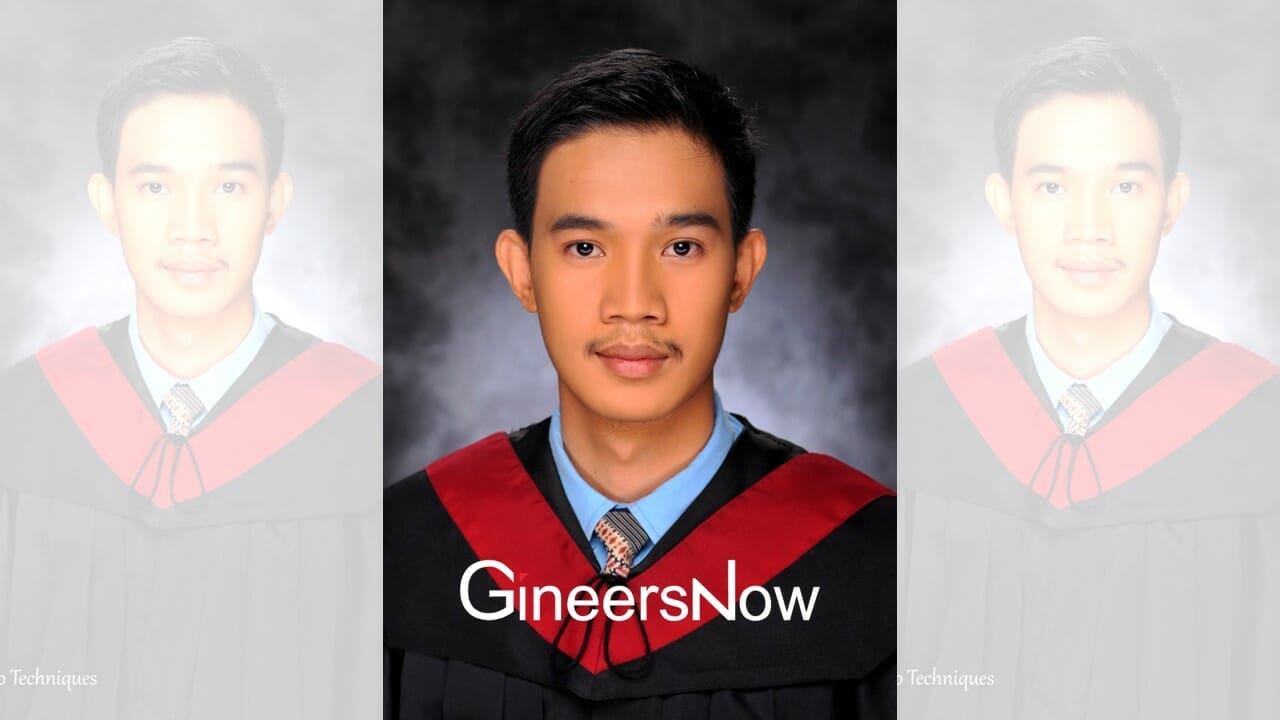I Enrolled in 10 Review Centers to be a Civil Engineering Topnotcher
So you want to ace that board exam and become a civil engineering topnotcher?
Many students who want to be a civil engineering topnotcher often ask themselves “how many weeks do I need to prepare for the licensure exam?”
I think the right question is “how many review centers should you take to nail that exam?”
In our lengthy and extensive Q&A interview with Engr. Daniel James Molina (DJ Molina), we found out 3 key ingredients to become a civil engineering topnotcher – Preparation, Prayers, and Perseverance (3Ps).
No matter what the odds are, you must persevere. Prepare for the worst. Pray a lot! Just like Capt. America said, “whatever it takes!”
DJ is a civil engineering topnotcher from St. Louis College, San Fernando. He took the 4th spot with a 91.85% rating.
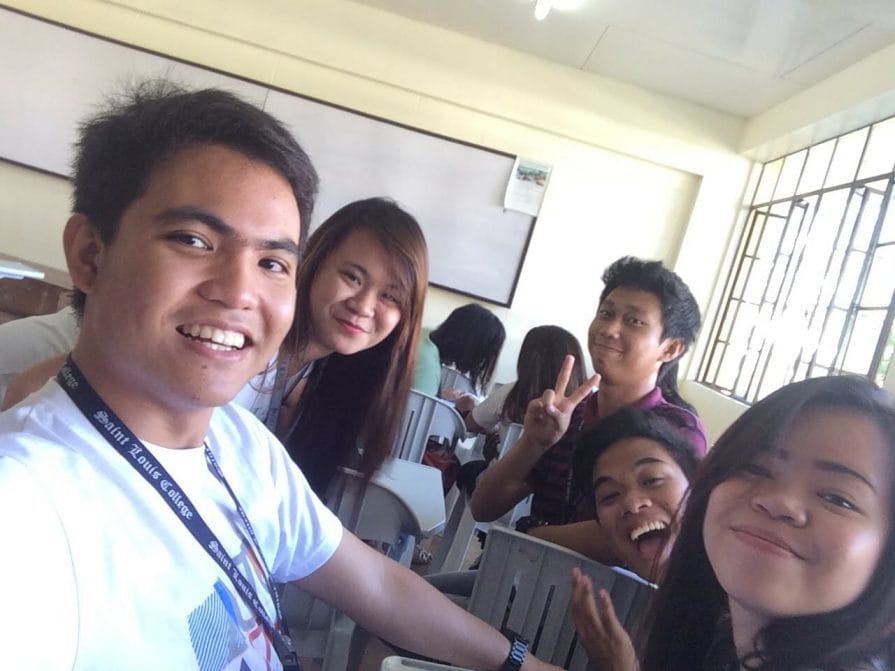
Here’s part 1 of 2
Here’s part 1 of our full interview with DJ Molina, civil engineering topnotcher.
Why is civil engineering a difficult subject? What makes it complex?
Civil Engineering is a complex program since it comprises subdisciplines that are not much directly related to each other but must coexist.
Yes, several topics are applied in many different subdisciplines of Civil Engineering. Still, the applications in the field will make the two fields a bit separated from each other.
It is complex because the topics are really spread out. From the drowning concepts of hydraulic engineering to the mind-cracking design provisions in structural engineering and many other concepts that are a bit far from each other like Engineering economy, environmental engineering, management engineering (as you may notice, there are almost 0 topics that are common to these subjects lol).
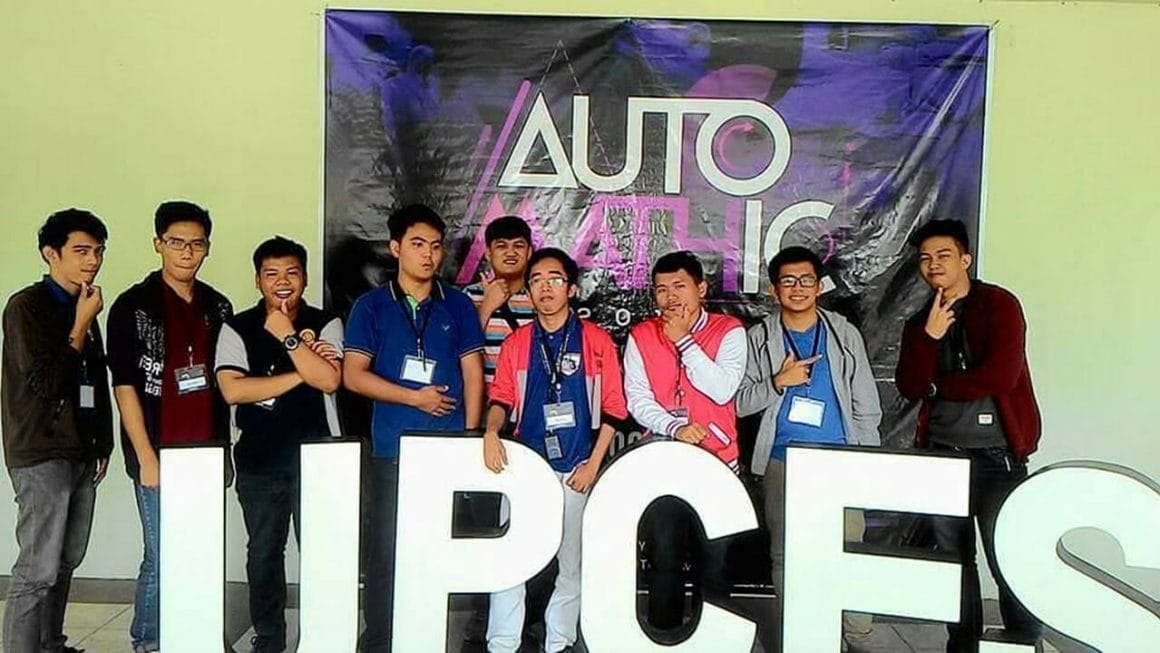
Why is it important for students to enroll in an engineering review center?
In my own understanding, self-review is a good thing since the only person who knows your strengths and weaknesses in review is yourself, and you will be able to give more time to review your weak topics. Still, there will be problems along the way:
- a) You need to schedule your own review from scratch.
- b) You don’t have anyone to guide you constantly.
Review centers are the ones that will guide you on what to study, how to study, and other tips along the way. They are also the ones who will help you recall all the topics that you have learned in college. Furthermore, the topics that you need to learn from scratch, which is also required for the board exam.
They are also the ones who will give you problem sets for you to simulate yourself taking the exam.
Likewise, enrolling in a review center, whether it is face-to-face or online, you will be able to meet people that have the same situation as you do: a reviewee who needs to absorb almost five years’ worth of learning for nearly 6 months just to take a 2-day, 100-item exam.

What are the differences and similarities of these review centers?
As I have observed, all essential topics in the board exams were all covered by the review centers I enrolled in. They also offer Review and Refresher programs, evaluation exams, preboard exams.
Since the concepts in all topics are all the same, the difference will be determined on the following factors (DJ version): Mastery of lecturers in the topics, the presentation of different possible approaches, additional topics (which can still be asked during the board exam but can only pop up rarely), the scheduling of topics, the mock exams they give, and how the review centers treat and inspire reviewees to study more for the board exam.

What makes a great review center?
Major factors are:
- The topics they teach. For me, if topic A is asked in the board exam in a significant number of exams, it should be taught in the review. I believe that we must focus on width over depth. More topics understood but not necessarily in-depth (just at the right depth, lol).
- The delivery of lectures. I think a review center is considered “great” if they will teach the general concept in a simplified way. I never liked the approach “as long as I can see the answer in the choices, we’re happy. Regardless if we used the right concept of not”
- The scheduling of topics. I have experienced two types of topic scheduling during the review.
First is by subject: 2 months Math- Surveying- Transportation Engineering, 2months for Hydraulics and Geotechnical Engineering, two months for Structural Engineering and construction.
The second type is Progressive. All parts (MSTE, HGE, SEC) will be taught simultaneously but progressively (from fundamental to advanced). For me, any of the two types are okay.
- Consistent schedule in giving evaluation exams and preboard exams: The student and review center will accurately monitor each student’s progress.
Minor Factors are:
- A review center that closely monitors students’ progress and gives additional hours for a consultation to clarify problems by the students.
- Friendly staff. Yes, of course!
- Encouraging and Approachable instructors.

What should students know before enrolling in a review center?
- From the word “review,” review centers will only help you in your review to prepare for the board exam. It is not like your undergraduate classes.
- The pacing is fast since there is only a limited time to tackle many topics. Hence you need to do your part in your review. That is why the review season brings out the best of each reviewee in terms of the effort and determination of each reviewee.
- Review centers do not spoon-feed. They’ll just guide you on what you need to review, but it is still up to the reviewee on how they will do their part to understand and master the concepts thoroughly.
What are your study habits during college?
Please give us 10 tips on studying so civil engineering students may follow your lead.
I admit I slacked off a bit when I was in college. I was lazy in scheduling the tasks (but still tried to finish those on time).
I was also sluggish in reviewing for significant exams. I only reviewed those that I really do not know or those I do not have any mastery of yet.
But based on those mistakes that I had during my college days when it comes to studying habits, here are some that I can share.

Effective scheduling of tasks
Create your own schedule of reviewing & doing any tasks. Ensure that you follow it. It is good to schedule your whole week during Sundays so that you will have a guide when the tiring week comes.
Maximize your vacant time
Use most of your vacant periods to do your requirements so that the remaining vacant time you have will be the time for rest before the next subject or before you do another task.
It is best to finish all tasks first before doing whatever you want
This one I should’ve done during my college days since I was really that bad at managing my time, especially my vacant times.

Overtime is way better than overnight
I’m not quite sure if this applies to your schools but in our school, you can go there as early as 6 am and stay until as late as 9 am (pre-pandemic).
Thus, I really suggest that all requirements, especially group requirements, are done in school until the school guards will escort you to go out of the school premises (hahaha). I was then having rest when you get home.
When I was in my 5th year, I realized this during the deadline for the Feasibility Study final manuscripts. I saw that my group had done about half of the job when we shifted to this scheme instead of scheduling overnights in someone’s home.
Do not purely rely on what your instructors/professors are teaching.
Try to study more of the topics they teach beyond what is being taught in the classroom.
The internet is a vast space where you can find lots and lots of references. I had seen different approaches to solving problems when I started to read online materials and hard copies of Civil Engineering books.

I have also seen some topics that are not usually covered in school.
At first, I thought it would not be worth it since when I share those topics, I learned with my classmates, some of them do not appreciate, or some of them refuses to listen to me since it is an approach/topic/ technique which is different from our teachers hence, deemed not helpful.
But when the board exam review came, there I realized that it was effective since I only had a few topics to learn instead of many (since I was already familiar with some topics in the board exam that were not taught in school)
If given a chance, join inter-school quiz contests.
There you will get used to time pressure variety of civil engineering topics. I had the chance to meet amazing people in different quiz contests.
I learned a lot from them since, even though we are competitors, we share ideas with each other, thus gaining more techniques and more “diskarte” in solving (since time pressure).

Have your own study routine.
There is no single study habit/routine that applies to all students. It will help if you look for that routine that suits you perfectly.
In my case, I really used Trial-and-error to choose which study routine worked for me the best.
20-80 rule.
This is also called the Pareto Principle. You must identify the vital 20% of a whole covering 80% of the whole. For example, to master differential calculus, you need not memorize 100% of all the formulas and concepts. You just have to learn the formulas/derivations/general concepts (which comprise 20% of the whole), making you understand the other 80%.
+ – = Method.
+ represents additional info from asking the people that will help you. Ask those who are engineers already, ask your instructors about things you do not understand, and ask your fellow classmates who already understood the topic.
( – ) represents the sharing of ideas with other people. Teaching your classmates the topics they do not understand will also help you understand more of the topics
= represents sharing ideas with people who have the same level of understanding with a certain topic. Who knows, you may also be able to develop better ways to understand topics.
Take notes
Write all of those points you need to note, especially those you do not understand, those you do not know.
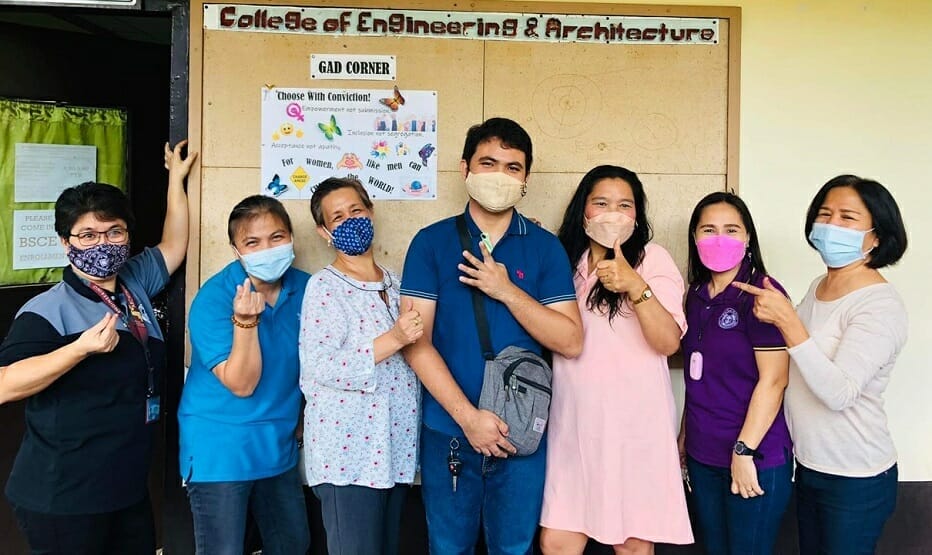
Please give us your top 10 tips on preparing for the board exam
I almost have the same preparation tips for the board exam as that of the above. Here are the things that I did:
- Pareto Principle
- +- = method
- Create your own review schedule – I already listed all the topics that I need to study for the board exam. Then plotted those in the calendar and boom. You already have a schedule. I made sure that I may be able to understand one topic that I do not fully understand every day.
- Never forget to include rest in your schedule.
- Reward yourself every time you achieve something. Either you shop something online, take a walk, eat ice cream, etc.
- Notes. Notes – I have written all the notes in topics I do not have at least 90% confidence in answering. Those topics that I can almost recall with a 90+% confidence level, I do not write them already since it will be a waste of time and effort since you already know it.
- Assess yourself. Try to answer a problem set without peeking into the solutions and notes so that you can simulate yourself for the board exam.
- Ask for guidance of the Divine Providence
- Be as healthy as you can possibly be. Your weapon when you take the board exam is your body. Never intake food that will not give any benefit to your mind. Take vitamins if necessary. When you are in good condition, mentally, physically, and emotionally, you will have a big chance to answer the problems in the exam with a correct answer.
- No topic left behind. As much as possible, try to understand all topics. Aim for the perfect score so that the only competitor that you have is yourself and not other examinees.

So the big question is, why on earth did you enroll in 10 different review centers?
Well, here’s the true chronological story.
I graduated in June 2019 from Saint Louis College, but due to some other reasons, I started reviewing in Manila (face-to-face) around July 2019 in one review center.
The usual review began by May 2019, so I thought I was a bit late in my review; hence I already started thinking about reviewing for one year and taking the exam by May 2020, but it took me until October 2019 (the last week of filing for the exam) for me to think about taking the exam by November 2019.
I realized I was not yet prepared mentally, physically, and emotionally to take the board exam.
Another reason for skipping was that I was a bit pressured since I was really aiming big for the board exam since I always tend to go beyond what is expected of anyone. If others only want to pass the exam, then I want to achieve more than just passing the exam since it is only once in a lifetime to pass the board exam.

March 2020 came, I was almost 80% prepared for the board exam. But the pandemic came. I had to go home to La Union in the hopes of going back to Manila after about two weeks, but, yes, the board exam was postponed.
I still tried to review every day, hoping that Nov 2020 exam would push through. I reviewed in only one review center (online), but Nov 2020 was again postponed.
For the May 2021 exam, I realized that I can still avail of the review incentives (free review-refresher, discounted rates) in different review centers since I graduated as Latin Honor and was a former quizzer in college.
Since that time was a time of pure uncertainties, I decided to enroll in the most number of review centers I could see so that I would be pushed to review every day and have no time of overthinking about postponements of board exams. In those months, I was already enrolled in 7 review centers (online).
Even though May 2021 exam was also postponed, I was more hopeful that Nov 2021 would be pushed through.
That is why I enrolled in 3 more review centers (online). Hahaha, yes, I also thought it was funny and stressful at the same time, but I thought it would be okay for me since I really need to be exposed to a wide variety of problems and take a lot of mock boards so that I will be fully prepared for the board exam.
Let’s talk about your work
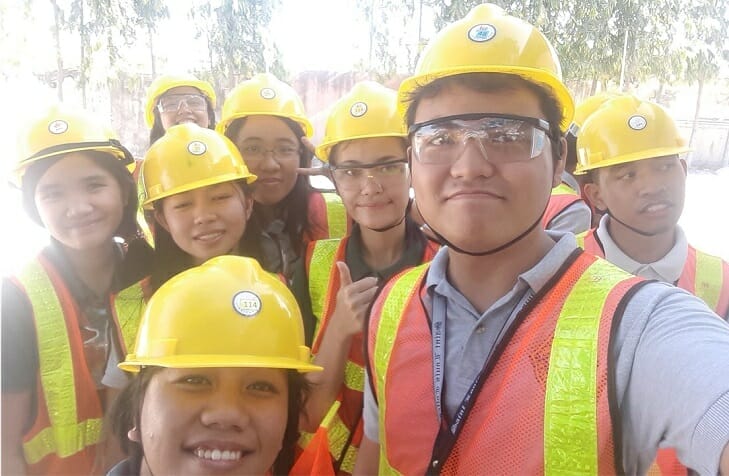
After graduation and the board exam, what did you do?
I rested for a few days before sending my CV to various companies.
What is your first job? Describe your role?
For now, I do not yet have any engineering job. Still, I am a part-time instructor at Saint Louis College for civil engineering and also a review instructor for Kippap Education, a civil engineering review center. As of this writing (March 3, 2022), I am still in the job application process in some of the companies I applied to.

Being a civil engineering topnotcher, is it easy to find a job and be accepted?
Describe the job interview process. Do you tell them that you are a civil engineering topnotcher?
If you are in the academe or the review-for-board-exam side, It is slightly easier to be accepted than that of the engineering-field jobs. I also underwent standard job application procedures like other job applicants had.
Employers were curious about me being a civil engineering topnotcher, but I made sure that I knew the fine line between being a great/excelling/successful engineer and being a civil engineering topnotcher.

What is your dream job?
My dream job is to become either a structural engineer or a geotechnical engineer.
I am interested in those two fields, but I am thinking about which field I should choose.
Where do you see yourself five years from now?
I see myself managing my group of companies, helping other engineers/future engineers become a better version of themselves, as engineers, too.
I also see myself creating jobs for other people. I’m not yet sure what industry I will be into, but I am determined to have my own engineering companies.
Let’s talk about some exciting topics

What are your aspirations for the engineering community?
I do hope engineers today and in the foreseeable future will help society become more envisioned to do what is best for improving the world’s quality of life, not only for themselves but for everyone.
What is your dream/hope for the construction industry?
Environmental-friendly construction processes, practices, and designs so that other people’s comments like “constructing something = destroying a natural thing” will now be a thing in the past.
Give us your top 7 books that civil engineering students should read? (civil or not civil related books)
- Outsmart the Board Exam by Engr Virata
- National Structural Code of the Philippines
- Books by Besavilla, Gillesania, Megareview, Esplana, and Falcon (Review centers)
- The Calculus 7
- ACI Code
- Steel Design by William Segui
- Reinforced Concrete by McCormack
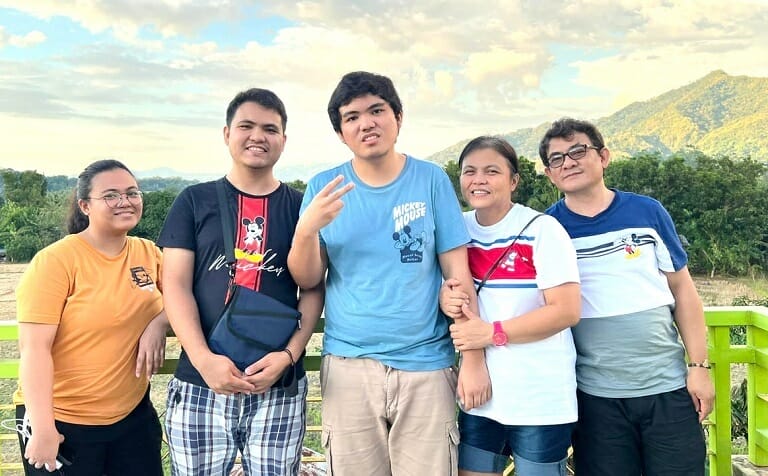
Who are the people that you look up to?
My parents, Terrence Tao, Engr Jaydee Lucero, Engr Venancio Besavilla, Engr Francis Arjay Luz, and others (which I might have forgotten when doing this interview)
Love life, describe and expound your relationship. How did you meet, where?
We met in Online Math World. I joined a math Group Chat during the 2020 lockdown (due to pandemic), and I met this lady. Then we started chatting until we became in a relationship. She’s a math major by the name of Shenette Lape.
Is it challenging to mix relationships while in engineering college? How difficult? What are the challenges? How did you overcome the obstacles?
You just have to be with someone who will fully support you towards realizing your dreams of becoming an engineer. But it would help if you also were supportive of your significant other. For me, it’s more of a challenge of not mixing the stress in your relationship with your stress in academics. Once you know how to separate the two pressures (haha, weird), it made me solve the problems that I/we face.
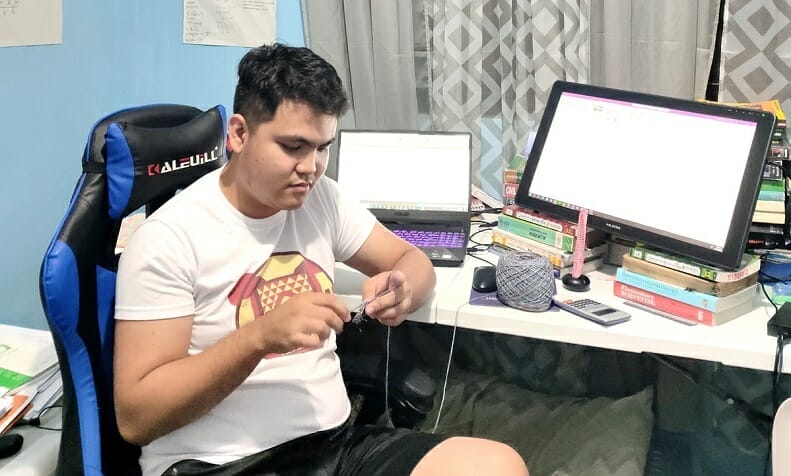
How do you relax?
Jigsaw puzzles, crochet, content creating (math stuff), watching movies, visiting some places.
Please give us a trivia about yourself that nobody knows
I always demand at least two pillows whenever I sleep. One for my head, one for me to hug.









